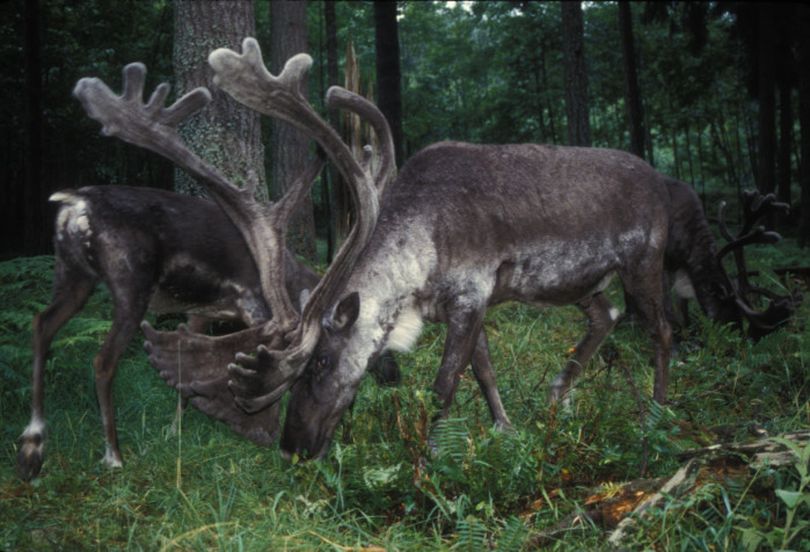Court: Endangered Selkirk caribou critical habitat must be revisted

UPDATED 4:50 p.m. with response from U.S. Fish and Wildlife Service.
ENDANGERED SPECIES -- In response to a lawsuit from a coalition of six conservation organizations, a federal court on Monday ordered the U.S. Fish and Wildlife Service to reconsider its 2013 decision to reduce by 90 percent its designation of critical habitat for the endangered mountain caribou.
The lawsuit was filed by the Center for Biological Diversity, Conservation Northwest, Selkirk Conservation Alliance, The Lands Council, Idaho Conservation League and Defenders of Wildlife, and were represented by attorney Laurie Rule of Advocates for the West.
According to information from the Center for Biological Diversity, the court found that the agency had not given the public sufficient opportunity to comment on the final designation, which slashed protected habitat for the beleaguered caribou from a proposed 375,562 acres to a mere 30,010 acres.
- The Selkirk caribou are the most at-risk game species in the United States, with numbers plummeting so low that neighboring Canada is planning to remove two wolf packs to give the prey a break.
“We can recover mountain caribou in Idaho and Washington, but it can't be done without protecting their habitat,” said Noah Greenwald, endangered species director at the Center for Biological Diversity. “I'm encouraged the lower 48's last caribou will get another chance at being awarded the amount of critical habitat that will truly foster their recovery.”
A U.S. Fish and Wildlife Service official said the court ruled that a procedural error occurred when the public was not afforded the opportunity to review and comment on the Fish and Wildlife Service's analysis of Canadian habitat in the agency's final determination on critical habitat for woodland caribou.
"The Court directed the Service to correct the procedural error," said Mike Carrier, state supervisor for the Service’s Idaho Fish and Wildlife Office, in an emailed statement.
"The Service is working with the Department of Justice to review the decision and options," he said. “The Service continues to work closely with states, Tribes, First Nations and conservation groups to develop and implement much-needed short and long-term recovery actions for woodland caribou.”
Woodland caribou once ranged across much of the northern lower 48 states, including the northern Rocky Mountains, upper Midwest and Northeast. The last remaining population in the northern Rocky Mountains was protected under the Endangered Species Act in 1984.
In response to a 2002 petition from the conservation groups, the Fish and Wildlife Service proposed designation of more than 375,000 acres in 2011. But then, in a sharp reversal in 2012, the agency designated only about 30,000 acres for the animals, arguing that caribou primarily reside in Canada now and that conservation efforts there are sufficient.
“This is one step out of many that are needed to stop the decline of this small caribou herd that likely once numbered in the hundreds,” said Tim Layser, wildlife biologist with the Selkirk Conservation Alliance. “With adequate protection from the impacts of off-trail snowmobiling and other threats, caribou numbers can once again be given a chance for recovery in the United States, although other issues need to be addressed.”
Mountain caribou are a unique form of woodland caribou adapted to surviving winters of deep snow, with dinner-plate-sized hooves that work like snowshoes and an ability to subsist for three to four months at a time on nothing but arboreal lichens found on old-growth trees. U.S. caribou are part of a population that straddles the border with British Columbia, with fewer than 20 animals found on the U.S. side of the border in recent years.
